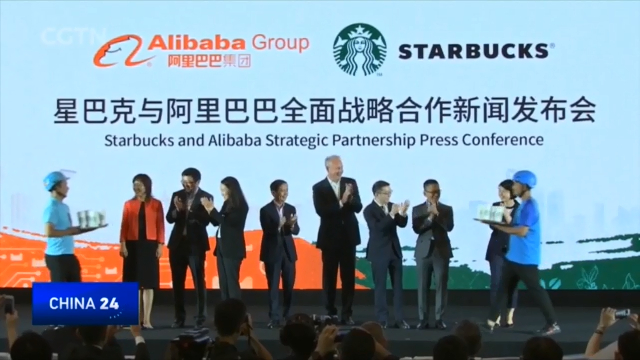
21:12, 24-Aug-2018
China-US Trade Tensions: US companies buck hostile trade policies, continue to invest in China
Updated
20:23, 27-Aug-2018
02:35

Despite the escalation of trade tensions between the world's two largest economies, many US companies continue to invest in China. CGTN's Han Peng gives us a look at what some industry leaders are saying about doing business here.
Amid an intensifying trade war, Elon Musk, CEO of the US car manufacturer Tesla, appeared in Shanghai last month.
He announced Tesla was opening its first factory outside the United States.
The Shanghai factory is unprecedented.
HAN PENG SHANGHAI "So what's different about this? Now if a foreign company wants to open a car factory in China, it has to set up a joint venture with a Chinese car company. Take this Toyota for example, here in China, the Japanese car brand becomes FAW-Toyota, a joint venture with China's state-owned First Auto Works. It's a 50-50 split in ownership."
But Tesla's new factory is 100 percent owned by Tesla, the first of its kind in China.
HUANG OU, DEPUTY DIRECTOR SHANGHAI MUNICIPAL COMMISSION OF ECONOMY & INFORMATION "This is a pilot project for Shanghai. It's echoing the central government's call for the removal of foreign equity limits in the auto industry."
Tesla is the largest foreign investment project in Shanghai.
The half a million Tesla cars that might eventually be produced each year in China will NOT be affected by the tariff hikes.
Tesla says it is "deeply committed" to the Chinese market.
A similar statement comes from the founder of US coffee chain Starbucks.
HOWARD SCHULTZ FOUNDER OF STARBUCKS "I was one of the early CEOs in America saying how bullish and excited I was about the Chinese opportunity for Starbucks and the China market."
Every 12 hours, Starbucks now opens a new store in China, its biggest overseas market.
Last month, Starbucks signed a deal with China's e-commerce giant Alibaba, in an apparent attempt to embrace China's online customers.
CGTN sat down with CEOs of both companies.
KEVIN JOHNSON CEO OF STARBUCKS "They have a shared vision around the future of retail and how you bring the offline experience with the digital experience together to create a new customer experience."
DANIEL ZHANG YONG CEO OF ALIBABA 'We started from the virtual world, and Starbucks started from the real footprint on the ground. But now we are together."
HAN PENG SHANGHAI "Any concerns about the trade war?"
KEVIN JOHNSON CEO OF STARBUCKS "We are focused on our business, and on the things that we can do."
Between profits and politics, many US firms have made their choices clear. Han Peng, CGTN, Shanghai.

SITEMAP
Copyright © 2018 CGTN. Beijing ICP prepared NO.16065310-3
Copyright © 2018 CGTN. Beijing ICP prepared NO.16065310-3